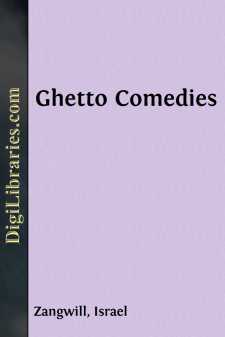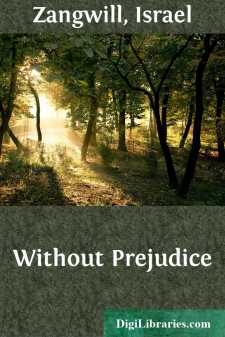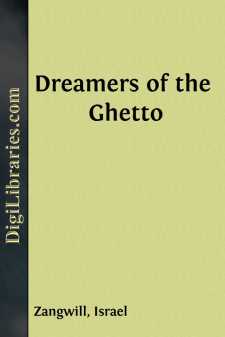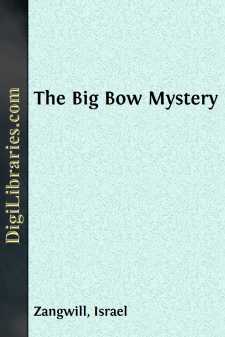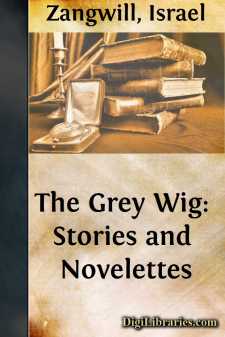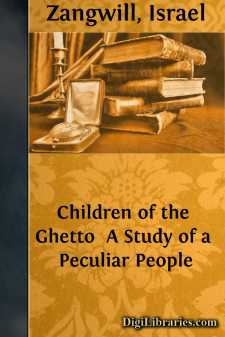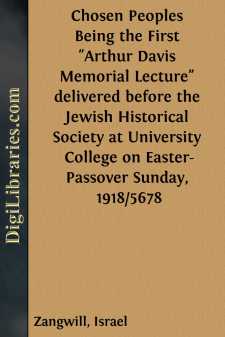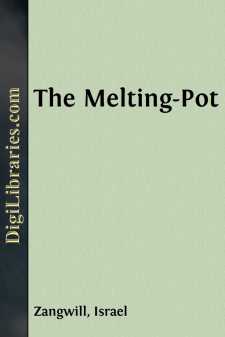Categories
- Antiques & Collectibles 13
- Architecture 36
- Art 48
- Bibles 22
- Biography & Autobiography 813
- Body, Mind & Spirit 142
- Business & Economics 28
- Children's Books 14
- Children's Fiction 11
- Computers 4
- Cooking 94
- Crafts & Hobbies 4
- Drama 346
- Education 46
- Family & Relationships 57
- Fiction 11829
- Games 19
- Gardening 17
- Health & Fitness 34
- History 1377
- House & Home 1
- Humor 147
- Juvenile Fiction 1873
- Juvenile Nonfiction 202
- Language Arts & Disciplines 88
- Law 16
- Literary Collections 686
- Literary Criticism 179
- Mathematics 13
- Medical 41
- Music 40
- Nature 179
- Non-Classifiable 1768
- Performing Arts 7
- Periodicals 1453
- Philosophy 64
- Photography 2
- Poetry 896
- Political Science 203
- Psychology 42
- Reference 154
- Religion 513
- Science 126
- Self-Help 84
- Social Science 81
- Sports & Recreation 34
- Study Aids 3
- Technology & Engineering 59
- Transportation 23
- Travel 463
- True Crime 29
Israel Zangwill
Israel Zangwill (1864–1926) was a British author and playwright known for his works addressing social issues and Jewish identity. His most famous play, "The Melting Pot" (1908), popularized the term and concept of America as a cultural amalgam. Zangwill was also an influential Zionist and social activist, advocating for Jewish causes and humanitarian efforts.
Author's Books:
Sort by:
by:
Israel Zangwill
CHAPTER I HOW I FOUND THE MODEL I cannot pretend that my ambition to paint the Man of Sorrows had any religious inspiration, though I fear my dear old dad at the Parsonage at first took it as a sign of awakening grace. And yet, as an artist, I have always been loath to draw a line between the spiritual and the beautiful; for I have ever held that the beautiful has in it the same infinite element as...
more...
by:
Israel Zangwill
A VISION OF THE BURDEN OF MAN And it came to pass that my soul was vexed with the problems of life, so that I could not sleep. So I opened a book by a lady novelist, and fell to reading therein. And of a sudden I looked up, and lo! a great host of women filled the chamber, which had become as the Albert Hall for magnitude—women of all complexions, countries, times, ages, and sexes. Some were...
more...
by:
Israel Zangwill
PREFACE This is a Chronicle of Dreamers, who have arisen in the Ghetto from its establishment in the sixteenth century to its slow breaking-up in our own day. Some have become historic in Jewry, others have penetrated to the ken of the greater world and afforded models to illustrious artists in letters, and but for the exigencies of my theme and the faint hope of throwing some new light upon them, I...
more...
by:
Israel Zangwill
OF MURDERS AND MYSTERIES. As this little book was written some four years ago, I feel able to review it without prejudice. A new book just hot from the brain is naturally apt to appear faulty to its begetter, but an old book has got into the proper perspective and may be praised by him without fear or favor. "The Big Bow Mystery" seems to me an excellent murder story, as murder stories go, for,...
more...
by:
Israel Zangwill
I They both styled themselves "Madame," but only the younger of the old ladies had been married. Madame Valière was still a demoiselle, but as she drew towards sixty it had seemed more convenable to possess a mature label. Certainly Madame Dépine had no visible matrimonial advantages over her fellow-lodger at the Hôtel des Tourterelles, though in the symmetrical cemetery of Montparnasse...
more...
by:
Israel Zangwill
PROEM. Not here in our London Ghetto the gates and gaberdines of the olden Ghetto of the Eternal City; yet no lack of signs external by which one may know it, and those who dwell therein. Its narrow streets have no specialty of architecture; its dirt is not picturesque. It is no longer the stage for the high-buskined tragedy of massacre and martyrdom; only for the obscurer, deeper tragedy that evolves...
more...
by:
Israel Zangwill
FOREWORD Mr. Arthur Davis, in whose memory has been founded the series of Lectures devoted to the fostering of Hebraic thought and learning, of which this is the first, was born in 1846 and died on the first day of Passover, 1906. His childhood was spent in the town of Derby, where there was then no Synagogue or Jewish minister or teacher of Hebrew. Spontaneously he developed a strong Jewish...
more...
by:
Israel Zangwill
Act I The scene is laid in the living-room of the small home of the Quixanos in the Richmond or non-Jewish borough of New York, about five o'clock of a February afternoon. At centre back is a double street-door giving on a columned veranda in the Colonial style. Nailed on the right-hand door-post gleams a Mezuzah, a tiny metal case, containing a Biblical passage. On the right of the door is a...
more...


